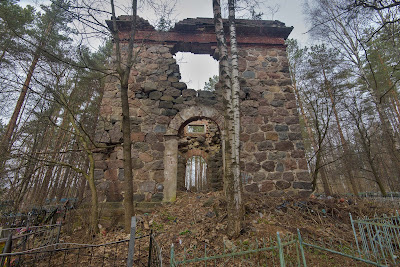 |
| 52 Vorovsky St. (Povarskaya St.), Moscow, 1950s |
31 October 1958
My dream evoked sharp anguish.
Martynov
It’s only later on that you feel sick...
Slutsky
The operation lasted no more than a minute.
Now Leonid Nikolaevich and Boris Abramovich
coward their way down Vorovsky Street,
feeling neither pain,
nor shame,
nor regret at the sight of that flock
of muses, sobbing as they disappear behind the Foreign Ministry.
Ahead there will be many summers,
winters, springtimes, trips abroad,
translations from the Eastern European,
the selected, the death, the commission for the literary legacy.
I imagine the space between hell and heaven
as an enormous railway station.
Where they spend the night (not sleeping though) on hard benches,
crowd round the buffet (the girl’s gone out for a minute),
stare at the epileptic having convulsions under the sign saying
‘Purchased Tickets are Non-Returnable
and Non-Exchangeable’,
and stand guard on their place in a queue stretching
immobile between grimy columns
like a tail between legs.
If anyone knows any genuine prayers,
say them for these two.
From Тайный советник (Privy Councillor), 1987
(Translation © 2018 G.S. Smith)
31 October 1958 is the date of the notorious meeting of the Moscow branch of the Union of Soviet Writers, called to ‘consider’ the case of Boris Pasternak after he published Dr Zhivago abroad and was awarded the Nobel Prize in literature. Thе meeting was held at the Union building on Vorovsky St, at the end of which towers the Stalin ‘wedding cake’ of the Ministry of Foreign Affairs. The poets Leonid Martynov (1905-80) and Boris Slutsky (1919-86) voted to expel Pasternak. Slutsky made a brief speech in favour of the motion; most sources agree that he never forgave himself for doing so.
The first epigraph is from the opening of Martynov’s poem ‘The Chronicler of Tobolsk’ (‘Tobol’skii letopisets’, 1936), about a pre-revolutionary convict who has had his nostrils ripped by the state’s executioner, a standard form of punishment: ‘From morning on Soimonov was full of anguish, in a dream he had seen Peter [the Great]./The Tsar gave him a sniff of tobacco, but chortled as he said/‘With your ripped nostrils you’re going to spill it!’/That dream evoked sharp anguish.’ (Соймонов тосковал с утра,—/во сне увидел он Петра./Царь дал понюхать табаку,/но усмехнулся, говоря:/— Просыплешь, рваная ноздря! —/Сон вызвал острую тоску.) In editions of Loseff’s poetry теку, the last word of the epigraph, is evidently a misprint.
The second epigraph derives from Slutsky’s poem about his service as a prosecutor when he was a political officer (politruk) during the Great Patriotic War, which inevitably evokes ‘the Pasternak affair’: ‘I used to be a judge, I know for sure/that judging people isn’t awkward in the least/—it’s only later on that you feel sick/if you make the mistake of remembering…’ (‘Я судил людей и знаю точно,/что судить людей совсем несложно - /только погодя бывает тошно, /если вспомнишь как-нибудь оплошно’.)
31 oктября 1958 года
Сон вызвал острую тeку.
Мартынов
Только вот потом бывает тошно...
Слуцкий
Операция продолжалась не более минуты.
Леонид Николаевич и Борис Абрамович
трусят по улице Воровского,
не испытывая ни боли,
не испытывая ни боли,
ни стыда,
ни сожаления при виде стайки
муз, рыдая удаляющихся за здание МИДа.
ни сожаления при виде стайки
муз, рыдая удаляющихся за здание МИДа.
Впереди еще будет много лет,
зим, весен, загранпоездок,
переводы с восточноевропейского,
избранное, смерть, комиссия по лит. наследству.
зим, весен, загранпоездок,
переводы с восточноевропейского,
избранное, смерть, комиссия по лит. наследству.
Место между адом и раем
мне представляется огромным вокзалом.
Там они ночуют (но не спят) на твердых скамейках,
мне представляется огромным вокзалом.
Там они ночуют (но не спят) на твердых скамейках,
толкутся у буфета (буфетчица ушла на минутку),
глазеют на припадочного, бьющегося под табличкой
«Купленные билеты назад не принимаются
и не обмениваются»,
караулят свою очередь,
неподвижную между грязных колонн,
как поджатый хвост.
и не обмениваются»,
караулят свою очередь,
неподвижную между грязных колонн,
как поджатый хвост.
Если кто знает настоящие молитвы,
помолитесь за них.

